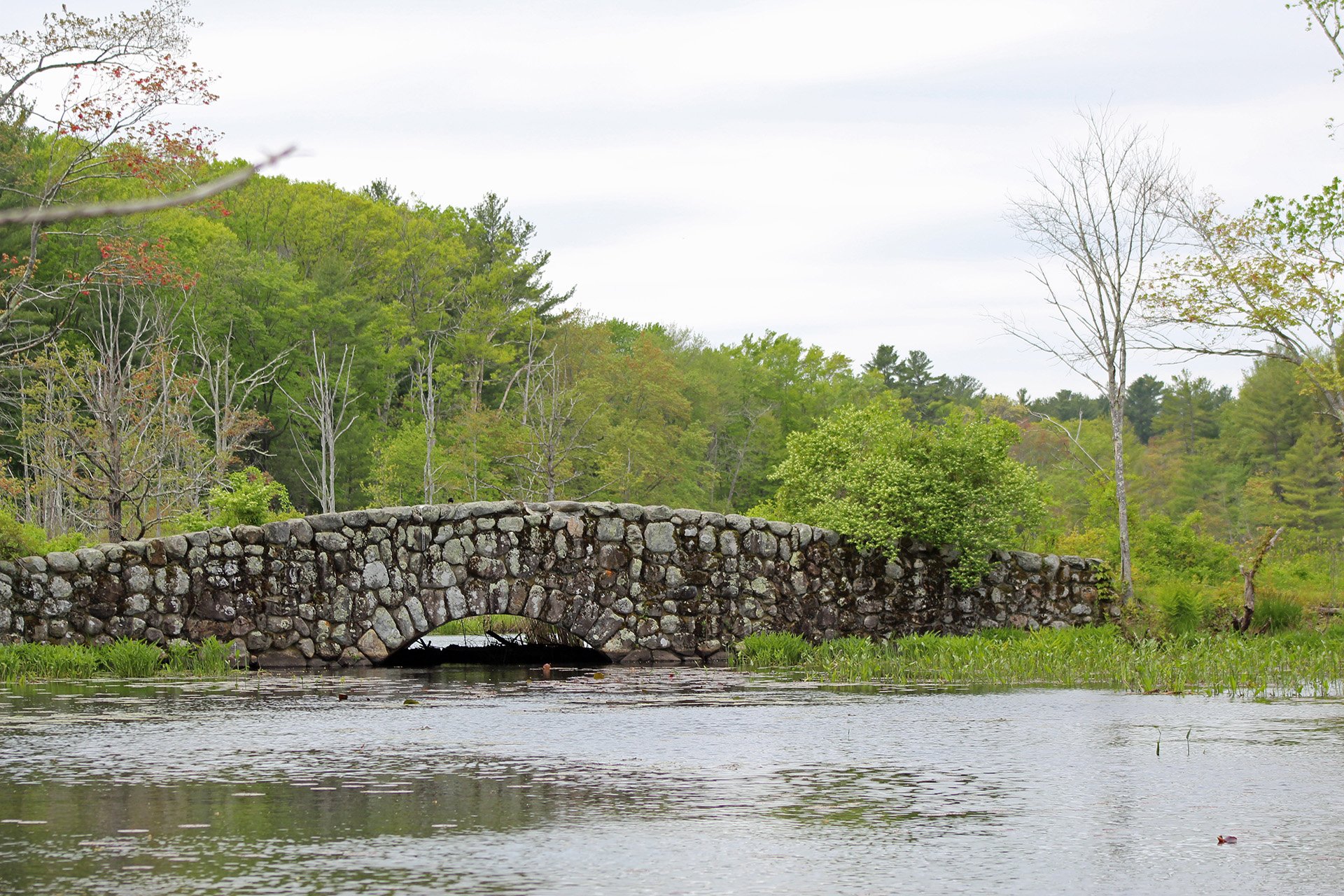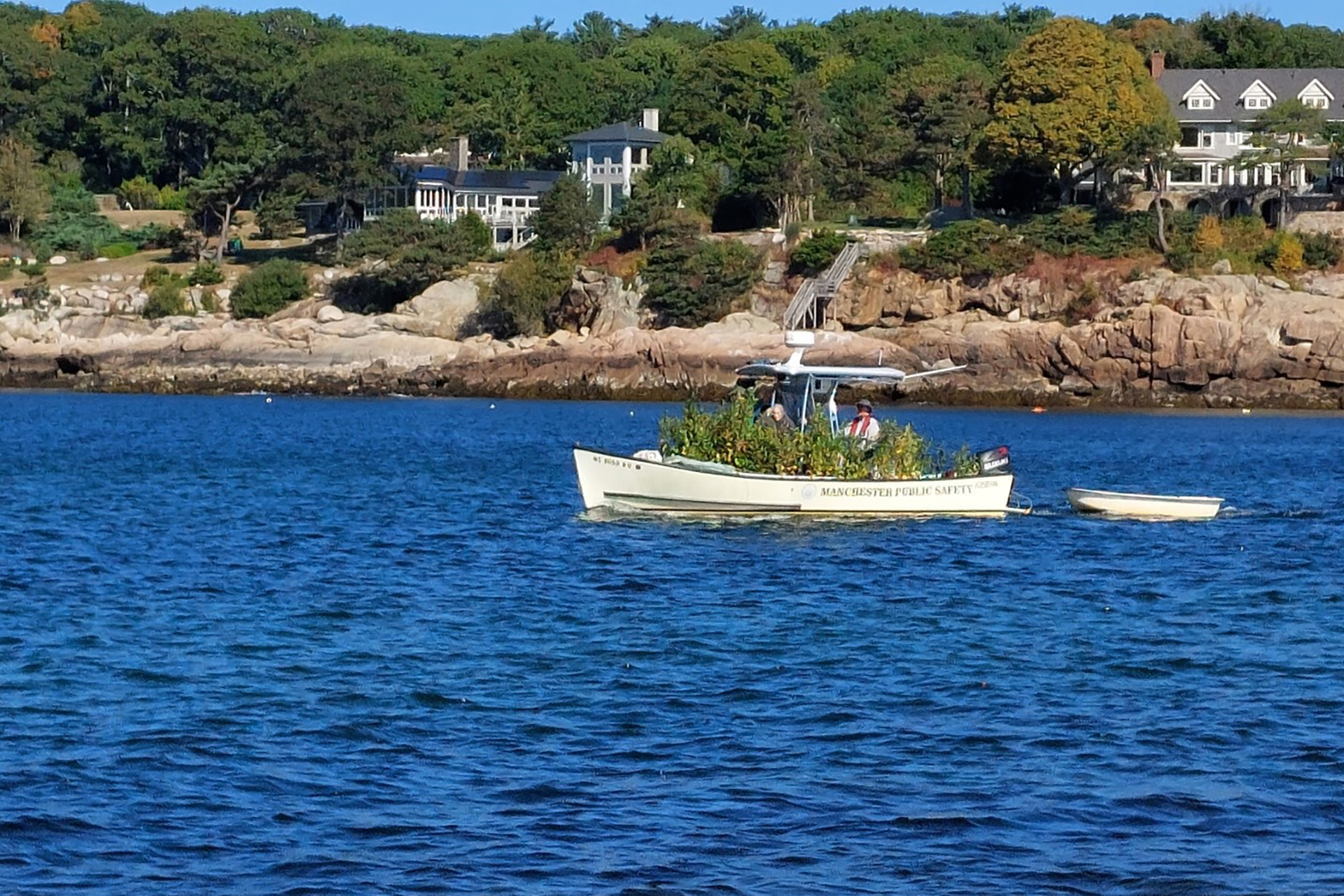Conserving Kettle Island's Wading Bird Habitat
October 07, 2024
Mass Audubon partnered with the Town of Manchester-by-the-Sea, whose Harbormaster helped bring native shrubs and trees (and staff!) to Kettle Island to undertake this work.
For part of the year, the 17-acre Kettle Island Wildlife Sanctuary is home to one of the most significant wading bird breeding colonies in Massachusetts. The Great Egret, Snowy Egret, Black-crowned Night Heron, and Glossy Ibis are dwindling in populations—and some are species of conservation concern—but have been observed breeding on Kettle Island, which lies off the coast of Manchester-by-the-Sea
To support and improve the habitats of these coastal waterbirds, Mass Audubon is removing non-native trees and planting native species on the island.
Habitat Management is Important!
The population of Norway Maple trees on Kettle Island poses a threat to the island's habitat health. As an invasive species, Norway Maples were introduced by humans to an environment where they did not naturally evolve. This has allowed them to aggressively fill an ecological niche, negatively impacting their new surroundings. On Kettle Island, they crowd out native trees and shrubs that wading birds have relied on for nesting habitats for thousands of years.
Staff from Mass Audubon’s Conservation Science and North Shore properties teams worked with a licensed arborist to remove fifteen Norway Maple trees from Kettle Island in mid-September. Once the Norway Maples were removed, sixty black cherry trees and twenty Eastern red cedars were planted. Both are native species and are preferred by wading birds for nesting.
These enhancements will increase the acreage and diversity of nesting habitats and offer better protection for nesting birds. The downed tree trunks and limbs will also be used to create protective barriers around the newly opened spaces to reduce the impact of browsing deer.
Kettle Island is unique because it is one of only a handful of places that meets the nesting habitat criteria of these coastal waterbirds, which includes shrubs, early successional trees, and limited human disruptions (Kettle Island is closed to the public). With these improvements, we’re optimistic that these beloved birds will thrive on Kettle Island.
Ongoing Stewardship and Community Support for Habitat Restoration
Mass Audubon’s ecological teams will monitor the success of the native tree plantings as well as conduct regular bird surveys to track the success of this initiative.
Many successful habitat management projects happen because dedicated individuals and organizations believe in the transformative power of nature, and Kettle Island is no different. The impactful work wouldn’t have happened without the support of Hollis Declan Leverett Memorial Fund, which provides grants for improving native bird habitats through planting and vegetation management. We would also like to thank the Manchester-by-the-Sea Conservation Commission and Harbormaster’s Office for their support and guidance. In addition, our appreciation goes out to Kettle Island neighbors for their cooperation and support over the years.
This work serves as a model for future restoration projects that support nesting wading birds, and we look forward to sharing the results as we continue to manage this rare, ecologically significant community. Learn more about Mass Audubon’s bird conversation projects and get involved today.
Stay Connected
Keep up-to-date on everything happening around the North Shore with Mass Audubon.




